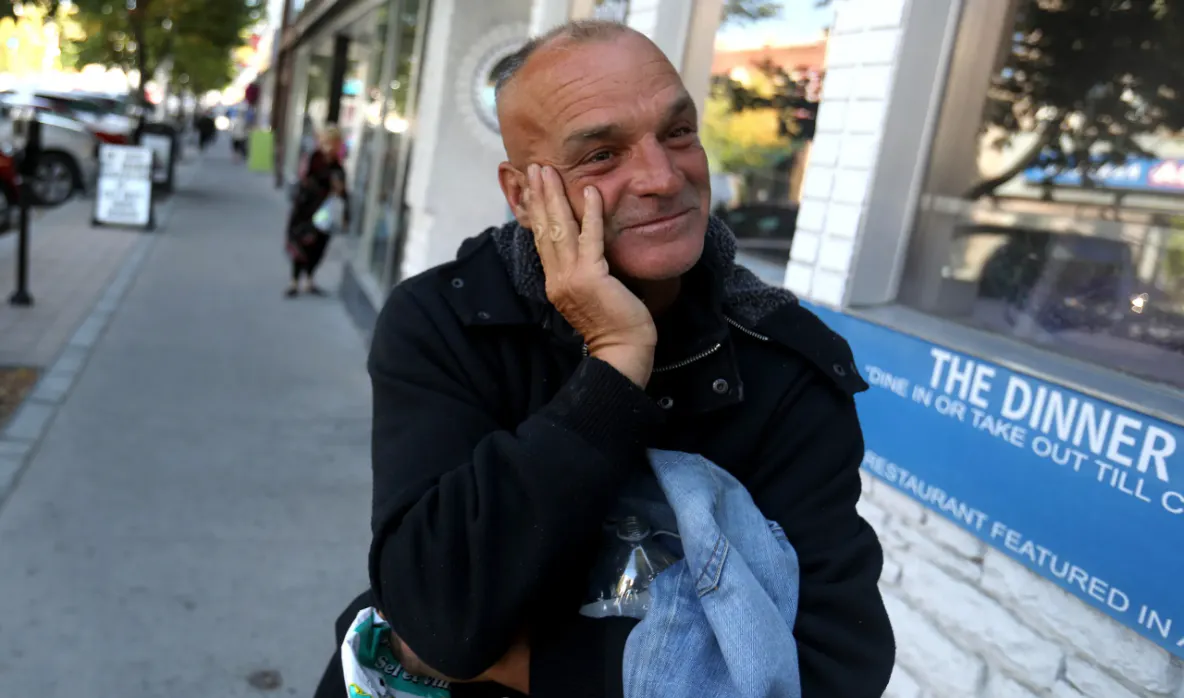Joe Murphy: A Year Goes By

It’s been over a year since we first found out former Edmonton Oiler Joe Murphy was destitute and homeless, living rough on the streets of Kenora, Ont. It’s a revelation that was as stunning as it was sad. Former NHL players, Stanley Cup winners, men who’ve earned millions of dollars, just don’t end up this way.
Once word of Murphy’s plight got out, I assumed it was simply a matter of time until his story changed. I knew a lot of people — former players, teammates, the NHLPA — would reach out to help Joe. They did. Having first met Murphy as a reporter who’d covered Edmonton’s 1990 Stanley Cup team, I was one of them.
I’d been working with The Mustard Seed, where our purpose is to help those struggling with poverty and homelessness in Edmonton, and Hockey Helps the Homeless, which holds fund-raising events for charities who do the same things we do across the country, for about six months back then. I was certain, with our resources and contacts, we could find a way to help.
Having spoken to Michael Strecker, who owned the land Murphy often camped out on in Kenora, and having left Strecker my contact information to pass along to Joe, which he did, I was surprised when weeks passed and I didn’t hear from him. How naïve I was. Here we are a year later and Murphy is still living on the streets of Kenora and in no apparent hurry to get off them. His story is documented in this gritty, chilling update written by Jeff Seidel of the Detroit Free Press. It’s a long read, but well worth the time.
REACHING OUT

Photo: ERIC SEALS, DETROIT FREE PRESS
Like I said off the top, I knew that when Murphy’s story broke people would reach out to him. They did. I assumed that’s all it would take. Joe would certainly want to get off the streets and get help. Any person would, right? Well, when mental illness or addiction, sometimes both, is involved, it’s not that simple. It’s not that easy, as excerpts from Seidel’s piece make abundantly clear.
Dozens of people have tried to get Murphy off the streets of this small tourist town the past two years, including the NHL Alumni Association, members of the local police department, former teammates, his lawyer and an entire team of mental health experts and social workers. He refuses almost all of it.
Glenn Healy, the executive director of the NHL Alumni Association, and Adam Graves, who played with Murphy for parts of two seasons in Detroit, went to Kenora in mid-September and found him a place to live for the winter.
“I didn’t ask them to help,” Murphy says. “They put me in a room and I said this room won’t work. It’s going to end in failure.”
He stayed in the apartment for several months. “It was a setup to make me look bad,” he says. “It’s almost a setup. Somebody is trying to control the town and control some things. You gotta get rid of that thing. They are trying to control everybody in it, so they put me in here, and have some fun.”
As Healy says in the piece, help — beyond getting a meal or a place to sleep for the night — is a phone call away. That holds true with the NHLPA and with agencies right across the country dealing with poverty, addiction and homelessness. The fact is, that while you or I would jump at the chance to get off the street, many people living that reality do not. We don’t understand it, but that doesn’t make it any less true, whether it’s Edmonton or Kenora or anywhere else.
THE OFFER STANDS

Front-line workers at organizations like TMS in Edmonton and those Murphy frequents in Kenora work with people struggling with mental illness and addictions in addition to poverty and homelessness on a daily basis. With some community members, a hot meal, a place to sleep for the night, a pair of shoes or a game of cards is all they want. They come. They go. They come back again. That’s Joe.
There is longer-term help available — counselling, work programs and housing options — and there are many success stories that come from these programs and initiatives, but you cannot drag somebody in off the street and make them take help they do not want. That much I’ve learned since Murphy’s story broke.
Dean Kurpjuweit, our executive director at TMS Edmonton, told me it might go this way a year ago. “We’ve been in contact with people over the years and we’re always surprised that when it comes to being housed, they don’t want our help, he said. “For whatever reason, and it’s obviously reasons we have trouble comprehending, some people are just comfortable in that lifestyle. It’s a lifestyle that they are choosing for now.
“That can change. There can often be an occasion where something makes them change their mind, but part of respecting the dignity of people who aren’t housed is respecting the fact that sometimes they choose to live without housing. We have to wait for them to choose something different for their life.”
So it is with Joe Murphy. At the bottom line, it doesn’t matter how Joe or anybody else finds themselves living on the street, only that they are there. All we can do is hope and pray that they are safe and offer them whatever help they are willing to accept. We leave that door open, but they must walk through it. Bless you, Joe.
Previously by Robin Brownlee
Recent articles from Robin Brownlee





